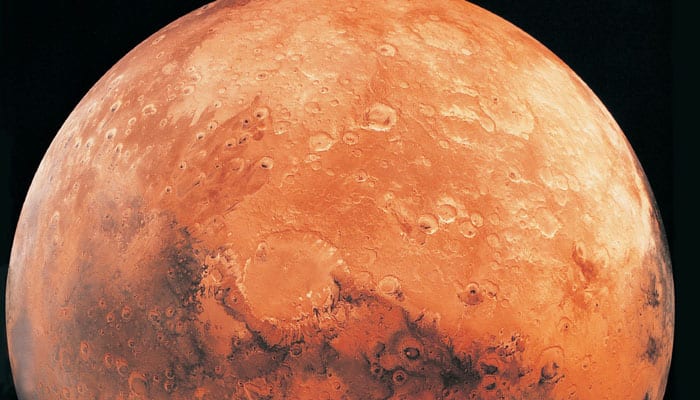Washington: A new study has provided a deeper insight into the geologic history of flowing water on Mars 4 billion-years-ago.
Brown University researchers combined images from NASA's CTX instrument with mineralogical data from NASA's CRISM orbiting spectrometer to create a geologic history of flowing water on the surface of Mars nearly 4 billion years ago.
They completed a new analysis of an ancient Martian lake system in Jezero Crater , near the planet's equator. The study found that the onslaught of water that filled the crater was one of at least two separate periods of water activity in the region surrounding Jezero.
The ancient lake at Jezero crater was first identified in 2005 by Caleb Fassett, a former Brown graduate student now a professor at Mount Holyoke College. Fassett identified two channels on the northern and western sides of the crater that appear to have supplied it with water.
That water eventually overtopped the crater wall on the southern side and flowed out through a third large channel. It's not clear how long the system was active, but seems to have dried out around 3.5 to 3.8 billion years ago.
The map showed that each of the fan deposits has its own distinct mineral signature that matches the signature of the watershed from which it was sourced.
The minerals' formation and their transportation seem to have been separated by a fair amount of time. Mapping of the watershed showed a younger layer of rock that sits on top of the hydrated minerals. The crater's inlet channels cut through that layer of younger rock. That meant the water that carved the channels must have flowed well after the mineral layer had formed.
That finding could shed light on the water story for early Mars. It's clear that Mars was once much wetter than it is now, but it's not clear that the Martian climate was warm enough to sustain liquid water at the surface for long periods.
Some researchers have suggested that if the early Martian climate was cold, chemical alteration on Mars may have been driven largely by water percolating in the warmer subsurface crust. That period of subsurface activity was followed some time later by pulses of water on the surface, potentially sourced by either snowmelt or rainfall, during transient periods of warm temperatures.
That second round of events was largely responsible for the mechanical erosion on the Martian surface.
The study is published in the Journal of Geophysical Research: Planets.
















